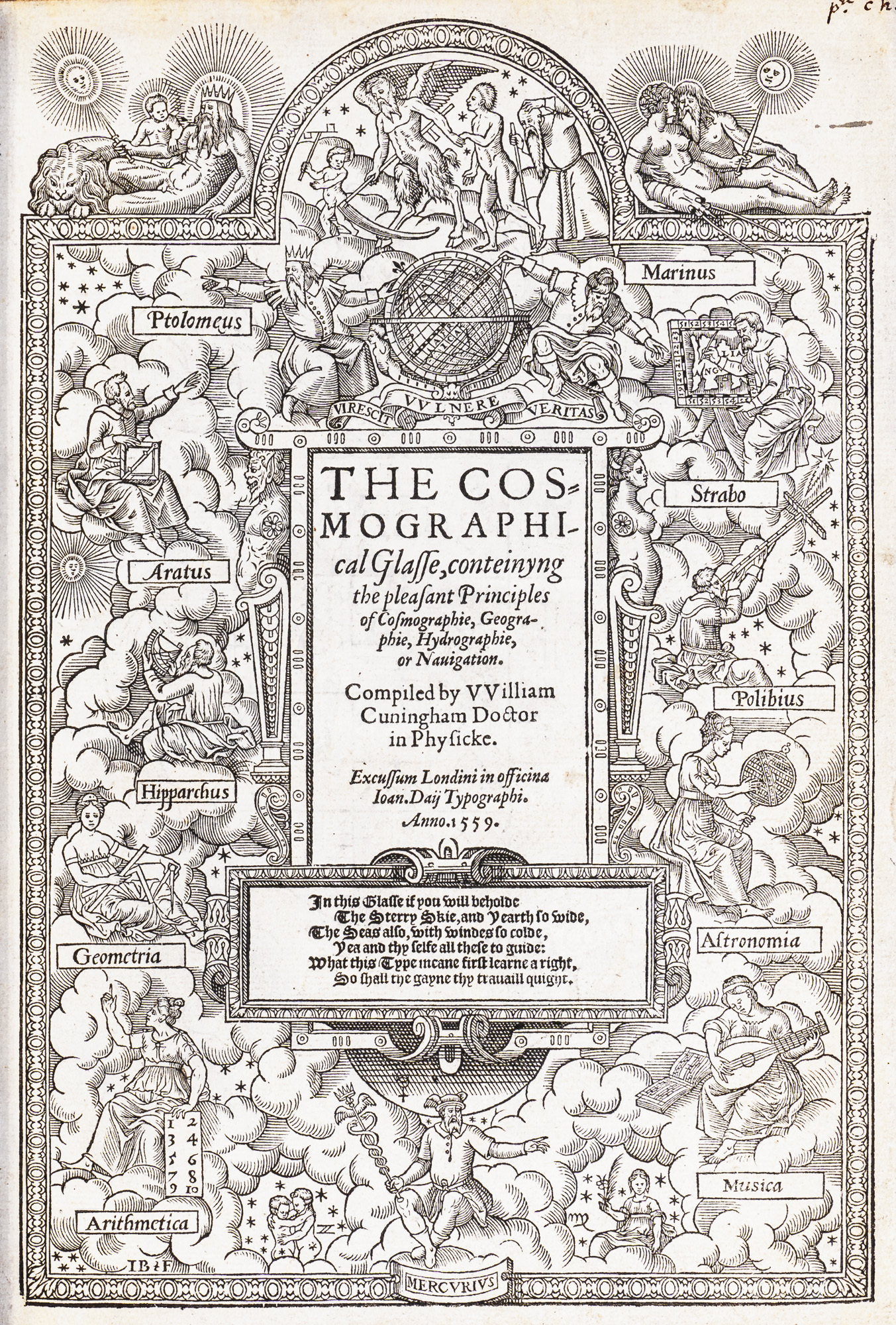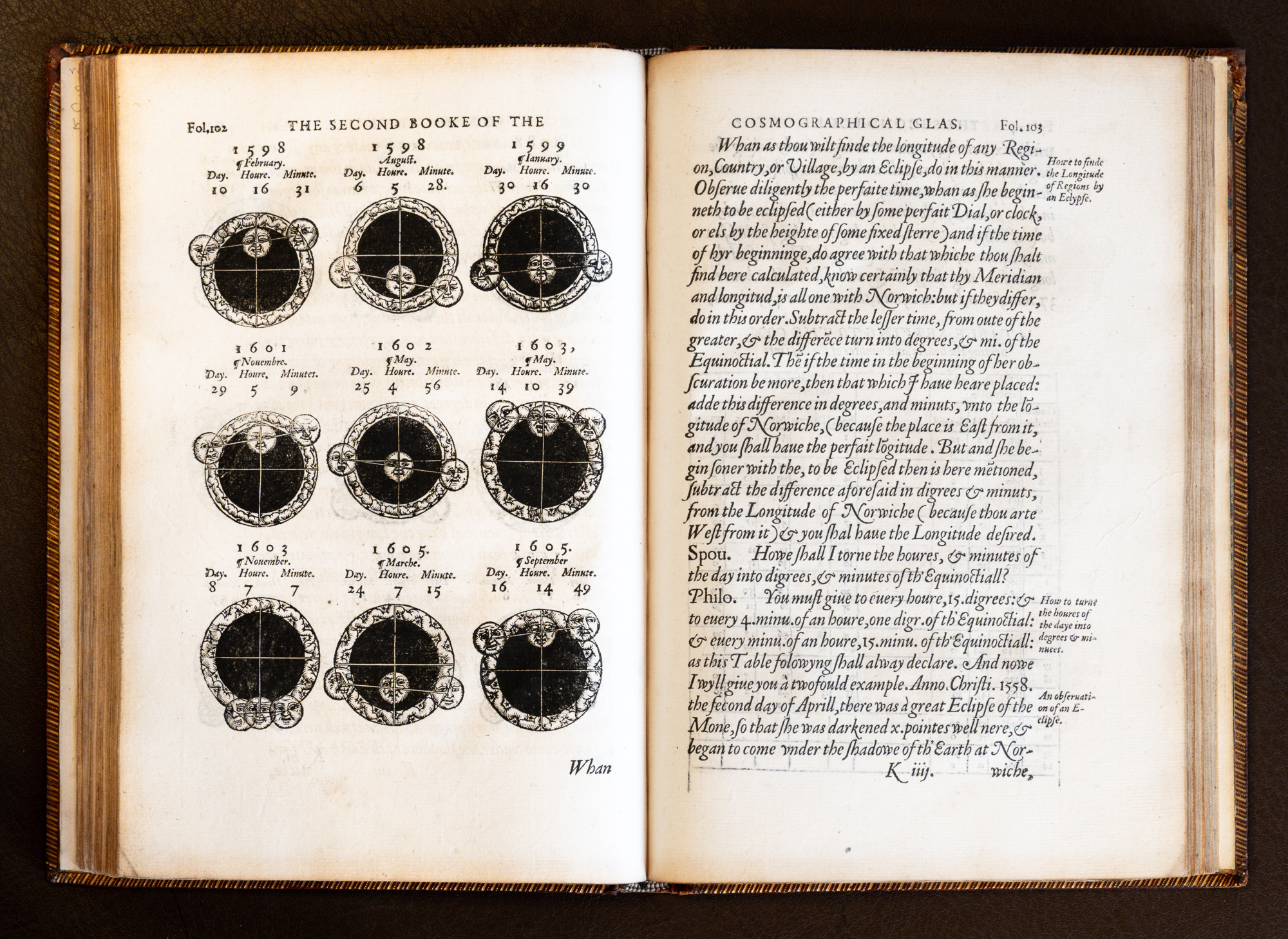William Cuningham was born in 1531, became a pensioner of Corpus Christi College, Cambridge in 1548 and studied medicine for seven years. He also studied at the University of Heidelberg where he was granted his MD in 1559 at which time he changed his name from Keningham to Cuningham.
Several of the woodcuts in the Cosmological Glasse are his own work including a portrait of himself in his doctor's robes.
Others of his many publications are -
The new Almanac and Prognostication writing for the year of Christ and our Lord MDLXVI diligently calculated for the longitude of London and pole article of the same, London, 1565.
An invective Epistle in Defense of Astrologers, 1560.
In the critical search for an accurate way of establishing the longitude of a ship at sea William Cuningham was an early participant as shown by this quotation from Sobel and Andrews Longitude -
Starting in 1530, the Flemish astronomer Gemma Frisius hailed the mechanical clock as a contender in the effort to find longitude at sea. --
Although it is not clear whether he knew of Gemma Frisius's suggestion, William Cuningham of England revived the timekeeper idea in 1559. Recommending watches "such as are bought from Flanders" or found "without Temple barre", right in London, for the purpose. But these watches typically gained or lost as many as fifteen minutes each day, and thus fell far short of the accuracy required to determine one's whereabouts. (pp. 43-44)

